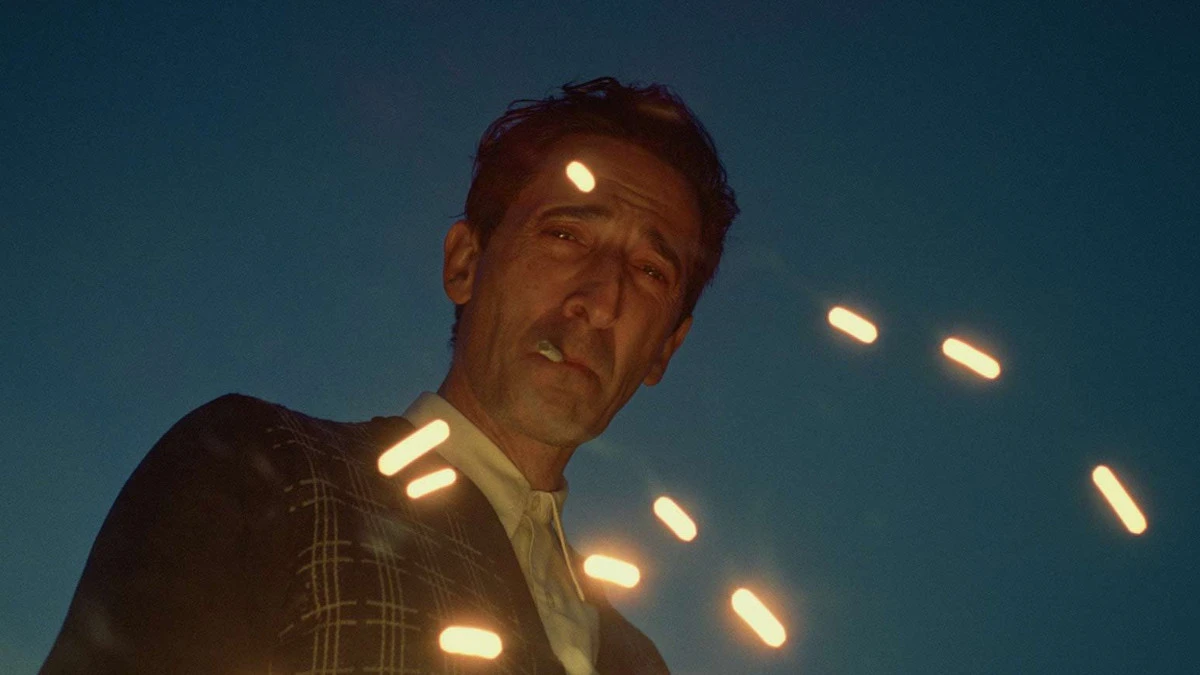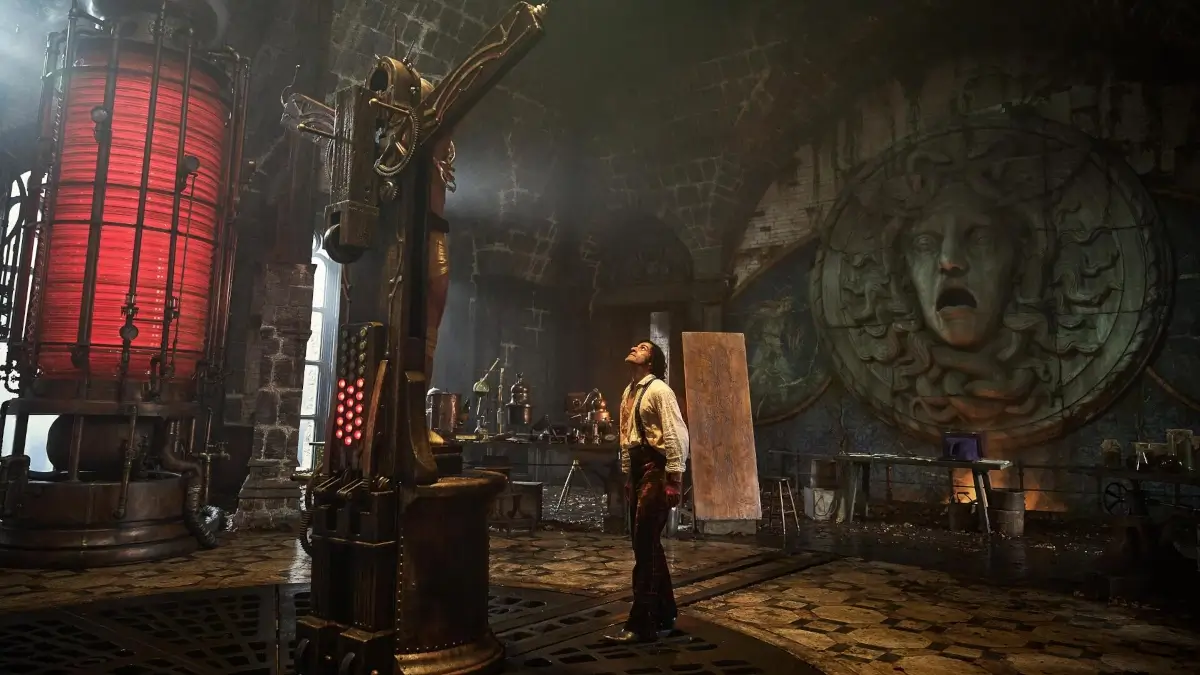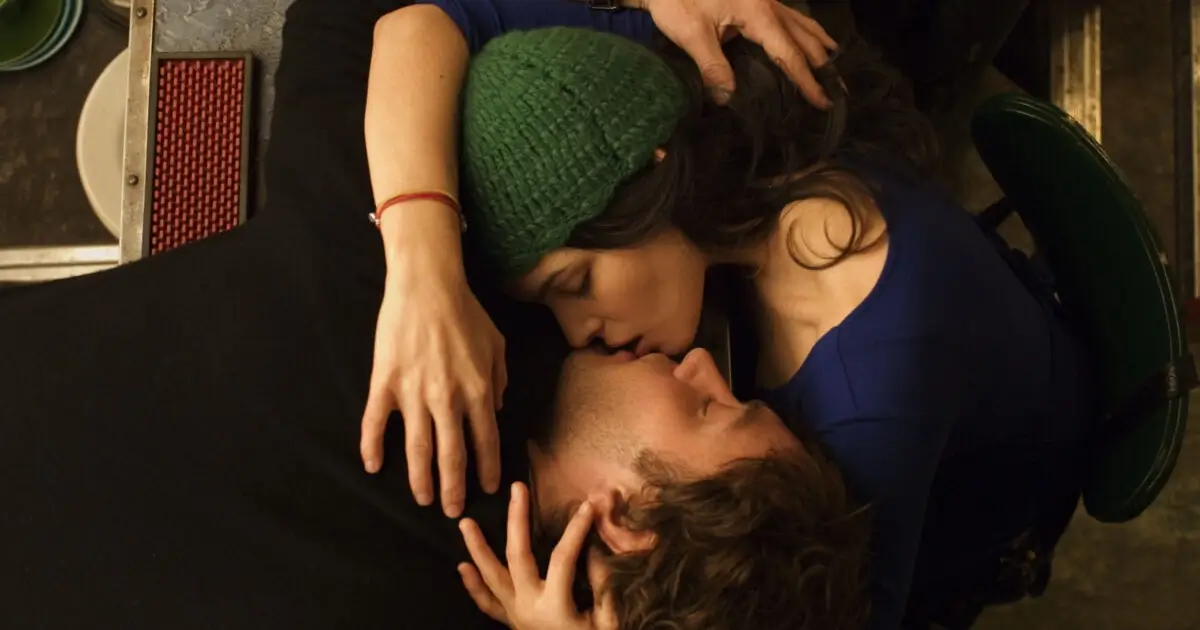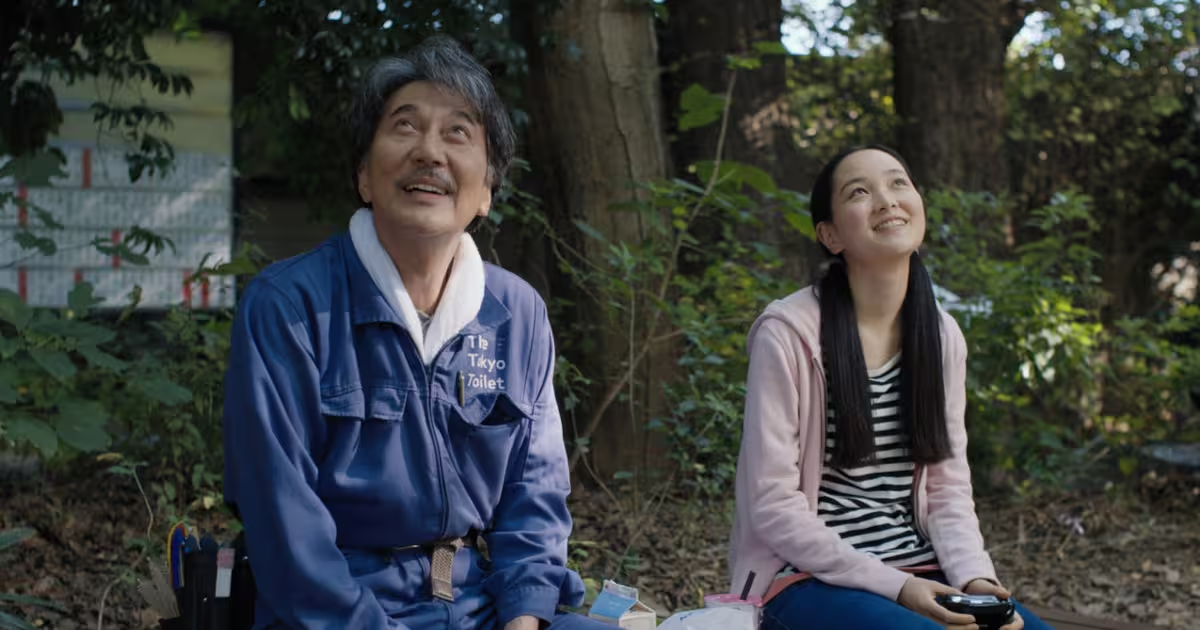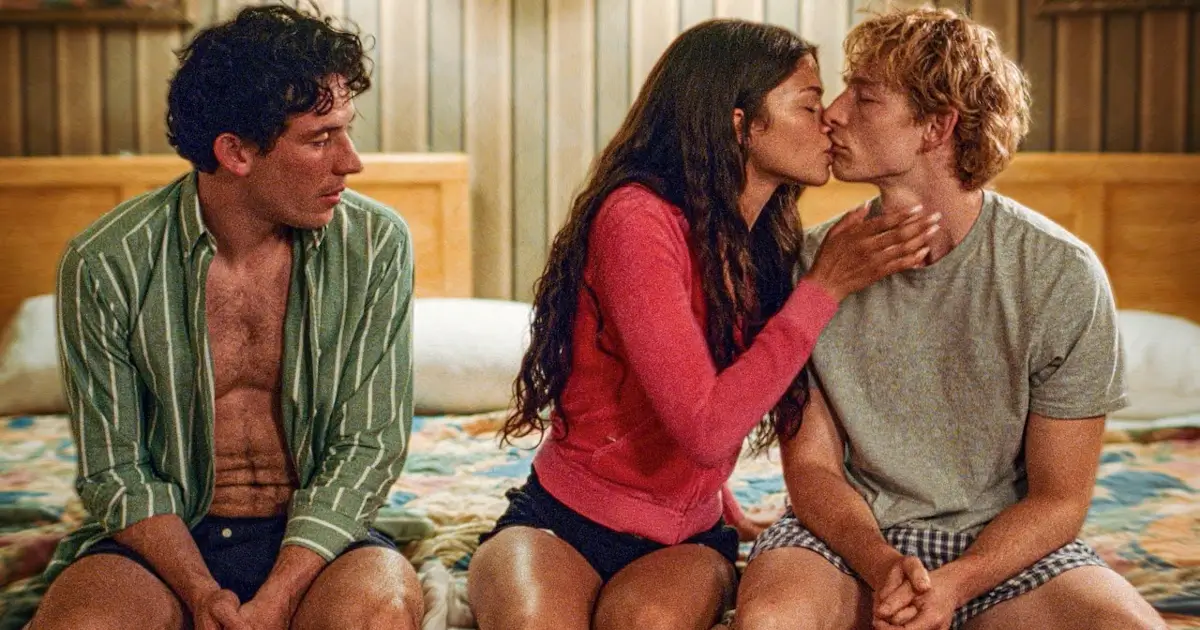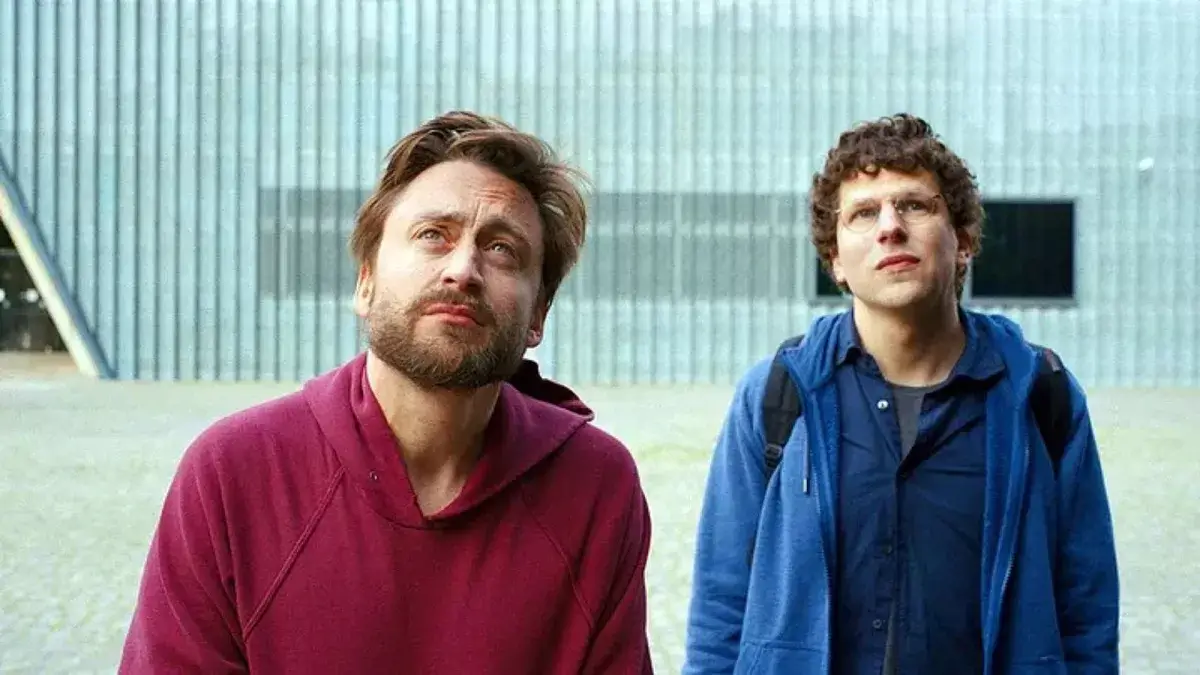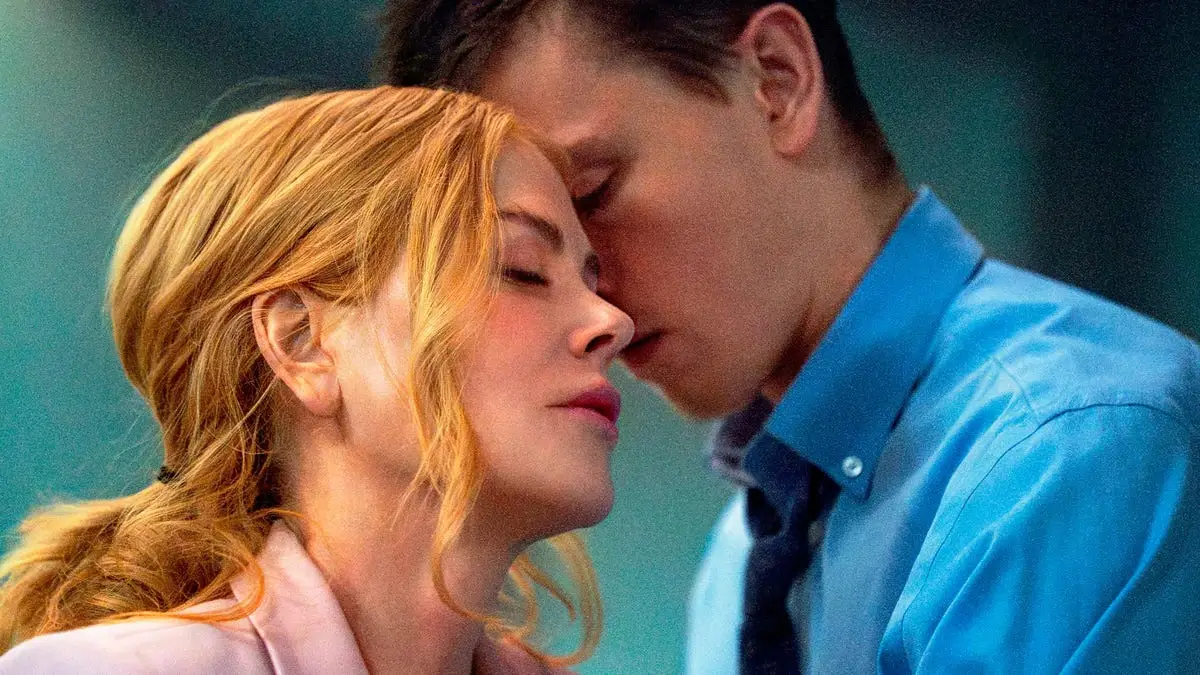Brady Corbet’s The Brutalist is a hauntingly lyrical and philosophically rich film whose script commands attention through its poetic gravitas and emotional precision. The dialogue moves like architectural blueprints—precise, layered, and weighted with memory, trauma, and political history. Characters don’t just speak; they reveal the scars of survival, the burden of displacement, and the austere beauty of creation in a fractured world. Whether through reflections on concrete as both medium and metaphor, or intimate confessions laced with sorrow and resilience, the script weaves personal and historical tragedies into a structure as monumental and unyielding as its titular style. Every line echoes with the film’s central obsession: to build something enduring from the ruins of war, exile, and love lost—and in doing so, to transcend time itself.
Quotes from the movie The Brutalist by Brady Corbet (2024) with Adrien Brody, Felicity Jones, and Guy Pearce.
These lonesome young servicemen are ostensibly entranced by such a radiant creature’s commitment to absolute silence.
The Soviets have helped us relocate to a nearby shelter for displaced persons in Vas. They encourage us to “enjoy our freedoms”, but I am reminded of Goethe.
“None are more hopelessly enslaved than those who falsely believe themselves free!”
I make no mistake, we are not yet free.
– Don’t you think I’m beautiful?
– I do.
– Which parts of me do you find most beautiful?
– All parts. Stop it.
– I don’t find all the parts of you beautiful.
It is the space above your brow for me which is the problem.
Perhaps no state or nation in all the history of man has been the deciding ground of so many human issues as has the state of Pennsylvania. Decisions that founded and assured survival of a great nation, that brought into being important colonisation movements, that established freedom of worship in America, that founded great religions, that gave birth to America’s educational system, that launched tremendous industrial empires, that forged the steel sinews and powered the driving wheels of today’s great civilisation. Here is where things happen, where decisions are made, where industry is making the greatest strides of any state or nation in the world. Pennsylvania. Land of decision for America, for American industry, and for American families.
– He’s talking like an American from the television now.
– Yes, well, we don’t have a television, but he’s been here since before I was born, and still doesn’t sound like any American I’ve ever met.
Newlyweds, they come in with an issue of Better Homes and Gardens, and they say,
“We like that table next to the perfume ad.”
And we say, “Well, we can make you something like that.”
And they say, “No, sir, we want exactly that.”
– Who is Miller?
– I’m Miller.
– No, you are Molnár.
– Not anymore.
– No Miller, no sons.
– Yeah. The folks here, they like a family business.
– Looks like a tricycle.
– What is that?
– It’s a bike for kids.
– Can you give a little smile for him? Huh? Sell it?
– Why are you always such a businessman? You are selling, always selling, selling.
– It’s your lucky day, too, ’cause my cousin here is a licensed architect, a specialist in renovations. He even designed a library back at home before. Right? A whole city library.
– What city is that?
– Budapest.
– You should have seen him talking up the prices. I was ready to settle at 450.
– I was not doing that.
– You were.
– I was not. I was telling him how much it will cost.
– No, I… I thought he was going to blow it for us. But you held your ground. And that’s what makes you professional.
– I hope it is not only that.
– You see? Like riding a bicycle.
– Tricycle.
– Family.
– A bike for children.
You missed the toilet. Better than the carpet, I suppose.
– Attila showed me magazine pictures. The projects you did at your firm. You’re not what I expected from what I read about you.
– I’m not what I expected either.
– You know, I’m sure you could get a job. A better job. At a firm here.
– I then would be working for someone.
– Why don’t you ask for a place to stay, wherever it is that you do go?
– I do not permit my people from home to see me as a beggar. Never.
– Tell me, why is an accomplished foreign architect shovelling coal here in Philadelphia?
– Well, I’m also doing the construction for a bowling alley.
– You were not prepared for what you saw. That is understandable. I’m glad you have come to appreciate it.
– I don’t just appreciate it, Mr Tóth. I cherish it. I hate surprises.
– I would like you to come and see it in the daylight.
– I’ve already seen it.
– I’d like you to come and enjoy it, rather.
I’ve found our conversation persuasive and intellectually stimulating.
– Are you working on anything at the moment, Mr Tóth?
– A bowling alley.
– Why architecture?
– Is it a test?
– No, it is not.
– Nothing is of its own explanation.
Is there a better description of a cube than that of its construction?
There was a war on.
And yet it is my understanding that many of the sites of my projects have survived.
They remain there still in the city.
When the terrible recollections of what happened in Europe cease to humiliate us, I expect for them to serve instead as a political stimulus, sparking the upheavals that so frequently occur in the cycles of peoplehood.
I already anticipate a communal rhetoric of anger and fear.
A whole river of such frivolities may flow undammed. But my buildings were devised to endure such erosion of the Danube’s shoreline.
What a poetic reply.
You must have been a beloved professor.
I’ve said it before, but I find our conversations intellectually stimulating.
– I would like to draw something and then present it to you.
– You’d like to win the commission. All right, you can do that.
Once I have distilled the essence of Father’s outburst, I’ll try and make some economic sense of it.
– Shh! Before I lose it. Dreams slip away.
– Yes, I know.
– Perhaps a swimming pool?
– I can’t swim. And perhaps it is too expensive?
– Don’t talk to me about money.
The total area is 2,684 square metres including a sizeable condensate system for harvesting rainwater, below grade.
Narrow openings you see here and here, they are skylights that can also be viewed as demarcations of units of space on either side of the entrance hall.
These units are convertible, multifunctional.
They offer a total occupancy of 500 persons on each side.
Bespoke systems for seating and storage allow for a conference, gymnasium, auditorium.
These rooms of a more standard size are pre-cast concrete.
The chapel at the heart of the building contrasted by an altarpiece of marble from the mountains of Carrara…
– When the sun travels from east to west, wooden beams located at the base of the towers will unite to form the symbol of a cross upon the altarpiece, when they are illuminated.
– Extraordinary.
– Concrete? It’s not very attractive. Perhaps we could split the difference on materials.
– Fortunately, the building’s aesthetic is not yours to resolve, Mr Woodrow.
I’d rather be alive at 18 percent than dead at the prime rate, Leslie.
As a foreign person and a newcomer to Doylestown, I see a community in need. And this is my only persuasion of relevance.
The Margaret Lee Van Buren Centre for Creation and Activity will be its manifestation.
A landmark which proclaims not only “I am new”, but “I am part of the new whole”.
Here we have the chapel interior.
It is suitable for 119 persons.
At dawn.
At sunset.
At noon.
Perhaps no one factor has been of greater importance in the forward march of American progress than Pennsylvania steel. Steel for great buildings.
Steel for bridges. Steel for motor cars. Steel for trains and for rails. Steel for planes. Steel for the guns of war and the machinery of peace. Steel.
She was able to provide me with several family photographs that clearly picture you, myself, and Zsófia with her mother on our wedding day. The poor dear thought us dead all these years, so had kept them on her mantelpiece in memoriam.
Steel for the guns of war and the machinery of peace.
How wonderful to finally make your acquaintance.
There was a period of time there where we thought he had made you up.
Isn’t it fascinating, meeting the significant others of great artists and thinkers?
As persons of unique privilege, I’ve always thought it’s our duty to nurture the defining talents of our epoch.
I, of course, am devoid of any such talent.
Truth be told, I… I am incredibly emulous of individuals like him.
Perhaps you can help your husband sound less like he shines shoes for a wage.
– These are minor changes. Places they thought we might save a penny.
– Leslie is a bastard.
– Yes, he is. That’s what we pay him for.
– Do you not want to be with me anymore?
– Stop this nonsense.
– Do you think I look older?
– We are older.
– Can’t you say anything kind to me?
– I love you, you cow.
– You can touch me.
– I don’t want to… I don’t want to hurt you, physically.
My László, I know what you’ve done.
I’m not jealous because I was with you all the time.
I know everything that has happened to you.
And I am here now,
And I will never leave you.
My love, I cannot bear it anymore!
– It’s a pity it’s so full of tramps these days hassling women and children with their arms outstretched. They line up and extend from the walls as if integral to its very foundation like some haunted wall mural.
– Perhaps that is why I felt so at home. I’m a former bag lady myself, who does also enjoy the work of the Dutch masters.
If you were to drink a bottle of Madeira every day, I shouldn’t think you’d last 30 years.
There. It is mine again.
He cuts three metres from the top,
I add it to the bottom.
Jim, please, tell us again what it is that you have built.
– I’m sorry, but you have asked me to come here to tell you what it is that we do not need.
– Plain and simple, the one thing we do not need is this guy.
– Come. Listen to me. Come. Come here.
– I’m listening.
– Everything that is… ugly… cruel… stupid… but most importantly, ugly… everything… is your fault.
How does that work? The company paying themselves a fee to finance?
László? We tolerate you.
He began gagging like a housecat.
And all he could say to explain was…
“Dear, I’m allergic.”
“I’m allergic.”
To which our concerned hostess replied,
“Oh, goodness, allergic to what?”
And he said, “To that.”
“I am allergic to whatever that is.”
– I am forfeiting the remainder of my fee due to some expenses unforeseen.
– Oh, so that’s what the son kept alluding to.
– Yes. He’s a snake. Don’t go near him, Zsófia.
To lose one’s birth mother is to lose the very foundation on which we stand.
The mind may not know its loss, but the heart does.
– I remember her.
– That’s because I’ve told you so much about her. You were too small.
– No, I remember Augusta. I just wanted to make it easier on you.
– What are you doing?
– I’m just looking at you.
– What do you think?
– It’s unusual, even for you.
– Goddamn it, Leslie! How the hell do you find these people?
– Transpo company is our own, Dad.
– What?
– We sent our own guys to Charleston. The rail cars were ours too. It was cheaper, given all the back and forth.
Send flowers to them, to the families for Christ’s sake.
Oh, wait, don’t! That looks guilty.
– It’s over!
– You have to march over there right now and get him excited again. Keep him engaged. You know how these rich fellows are. For him, it’s like… it’s like refurbishing a kitchen.
– Life is difficult there. Have you thought this through?
– It is our obligation.
– To whom?
– Our repatriation is our liberation.
Does it somehow make us less Jewish that we are here?
I write for a paper and I’m paid for it. How many women my age could make the same claim?
– He’s in Roma on business. He would like me to join him to select the marble for the altarpiece in Carrara.
– I told you, for him, it’s like doing a kitchen.
– Where the hell is he?
– I’m sure he’ll be… be along any minute. He lives in the mountains. It takes time.
– This is why I never do business with Italians. They’re the spics of Europe.
I will take a coffee and we can go.
– What happened to his hand?
– Dangerous work.
There aren’t many people I see anymore from before the war. I’m not surprised to see you, though.
Some people, you just knew somehow they would be all right.
Because you are stubborn.
And so am I.
I will never leave this place.
Because you are stubborn.
I have left only once in 20 years to go to Giulino, Azzano, to beat the corpse of Mussolini with my own hands.
Those of us here, my colleagues, we are anarchists.
We were part of the Resistance.
No one knows the quarries like us.
We fought and captured many members of the National Republican Army.
We trapped them in these caves.
And we dropped these very same stones on them.
– It is beautiful, no?
– It is beautiful. Exactly as you described, László. Extraordinary.
Such a life down the years.
And we are still here.
Mr Tóth?
What have you done to yourself?
It’s a shame seeing how your people treat themselves.
If you resent your persecution, why then do you make of yourself such an easy target?
If you act as a loafer, living off hand-outs… a societal leech, how can you…
how can you rightfully expect a different result?
You… you have so much potential.
But you squander it.
Get it out. Let it out.
Let it out. It’s all right.
It’s all right.
Who do you think you are?
Who do you think you are?
You think you’re special?
You think you you just float directly above all those you encounter because you’re beautiful, huh?
Because you’re educated?
You’re just a tramp.
You’re a lady of the night.
You’re just a lady of the night.
♪ That’s what you are ♪
I hope your stomach is not too sensitive on aeroplanes.
Here, I am so alone.
Perhaps more alone than I have ever been.
Your uncle closed a door to me.
The man I married is inside,
but the lock’s combination I cannot decipher…
I suppose that inside,
he worships at the altar of only himself.
I am sick of it. Sick! Do you hear me? I finish this or we are finished.
Speak for yourself. I am not finished. Living with you is impossible.
– His bitch, bitch wife accused me of making a pass at her.
– You would never do that.
– I did not do that.
– Then why would she say such a thing?
– Because they do not want us here.
Audrey, Attila’s Catholic wife, does not want us here!
She does not want us here!
We are nothing.
We are worse than nothing.
It’s what they gave me on the boat for my broken face.
It’ll help you feel better.
You needn’t be ashamed, my darling.
The harm done unto us was done only to our physical bodies.
You were right.
This place is rotten.
The landscape, the food we eat, this whole country is rotten.
Tell them what you did to my husband.
Tell them what you did.
Your husband is sick.
He’s alcoholic. Drug-addicted.
I don’t know why he wishes to hurt me, to humiliate me.
I have offered him nothing but kindness.
He’s a sick, senile old dog and when dogs get sick, they… they often bite the hand of those who fed them, until someone mercifully puts them down.
You are not excused, Harrison Van Buren!
My uncle is, above all, a principled artist.
His lifelong ambition was not only to define an epoch, but to transcend all time.
In his memoirs, he described his designs as machines with no superfluous parts.
That, at their best, at his best, possessed an immoveable core, a hard core of beauty.
A way of directing their inhabitants’ perception into the world as it is.
The inherent laws of concrete things such as mountains and rock define them.
They indicate nothing.
They tell nothing.
They simply are.
Born in 1911 in a small fishing village in Austria-Hungary, László Tóth looked out upon the Adriatic Sea.
He was a boy with eyes wide open, full of yearning.
New borders would eventually rip this expanse of sea away from him, but never did he stop to try and fill its void.
Forty years later, he survived the camp at Buchenwald, as did his late wife, and myself, in Dachau.
His first American masterpiece, the Van Buren Institute outside of Philadelphia, remained unfinished until 1973.
The building referenced his time at Buchenwald, as well as the deeply felt absence of his wife, my aunt, Erzsébet.
For this project, he re-imagined the camp’s claustrophobic interior cells with precisely the same dimensions as his own place of imprisonment, save for one electrifying exception.
When visitors looked 20 metres upwards, the dramatic heights of the glass roof above them invited free thought, freedom of identity.
He further re-imagined Buchenwald and his wife’s venue of imprisonment, Dachau, on the same grounds, connected by a myriad of secret corridors, re-writing their history, transcending space and time, so that he and Erzsébet would never be apart again.
Uncle… you and Aunt Erzsébet once spoke for me.
I speak for you now, and am honoured.
“Don’t let anyone fool you, Zsófia,” he would say to me as a struggling young mother raising my daughter during our first years in Jerusalem.
“No matter what the others try and tell you, it is the destination, not the journey.”
Thank you.
